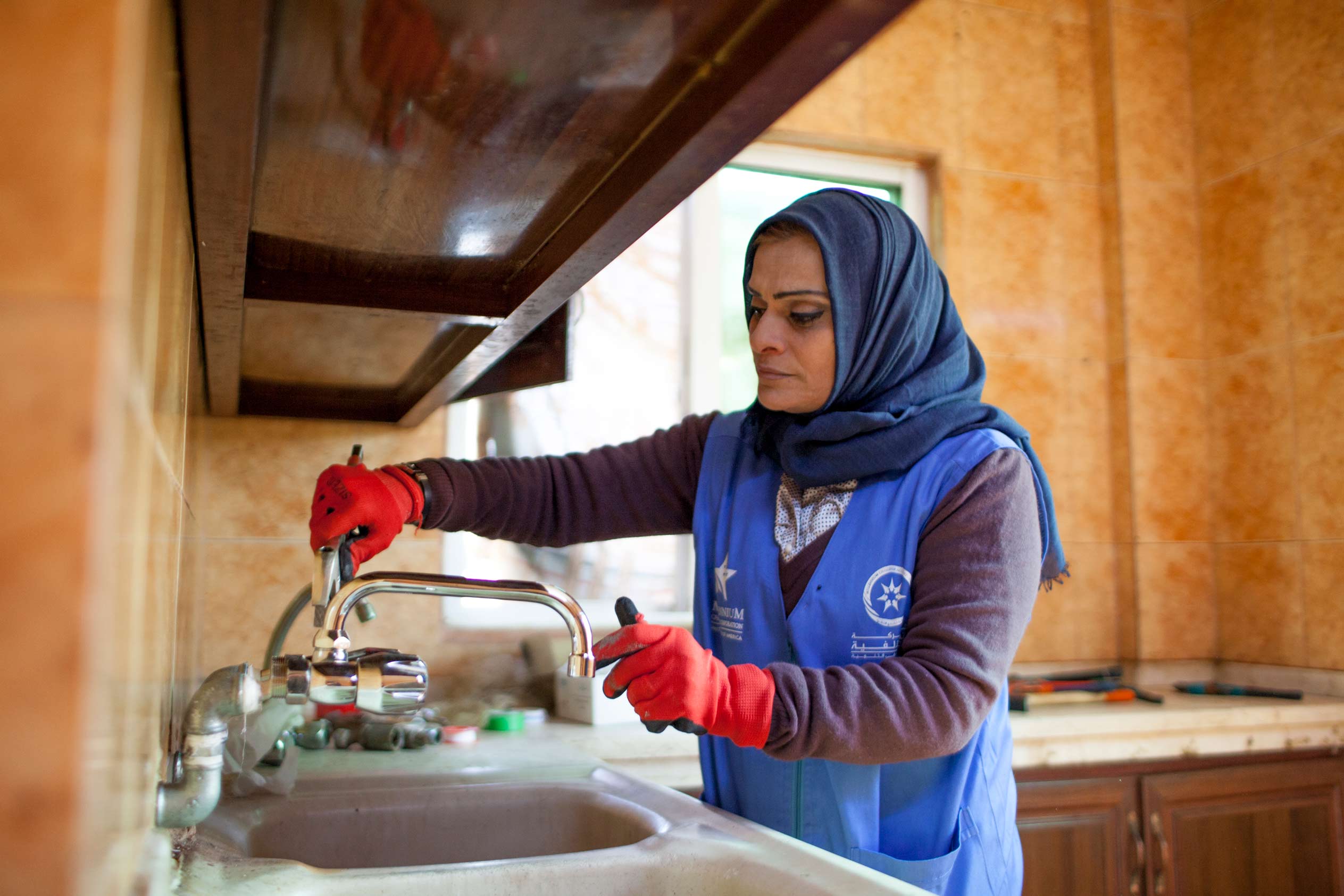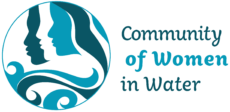
Resources
The following resources are compiled from suggestions by CWiW members. They are not the property of nor endorsed by CWiW. If you have a resource you would like added to this page, please contact info@cwiw.org.
You can view the talks from some of our past CWiW events here.
You can search the Resources below or select one of the main headings:
Research
Articles & Reports
Articles & Reports 2021-Today
- “It’s time to reset our approach to the global water crisis.” (Context, Alan Nicole et. al. 2023)
- Advancing the evidence for water, sanitation, and hygiene (WASH) systems strengthening: A Delphi study to define research priorities (D’Mello-Guyett, L. et al., 2025)
- Água e gênero: Perspectivas e experiências, vol. 1 MG, Brasil, Fernanda Matos e Alexandre Carrieri, 2022
- Civil Society Organisations and Development: Reflections from Water for Women on the Role of CSOs in Community Development (Water for Women, 2025)
- Global Trends in Climate-Water Resilience 2025: Navigating the Policy, Finance, and Climate Landscape (Water Resilience Tracker, 2025)
- How Australian environmental non-governmental organisations frame and enact climate justice (npj Climate Action, Robyn E. Gulliver et. al., 2023)
- Infiltrated Pits: Using Regional Groundwater Data to Estimate Methane Emissions from Pit Latrines (Hydrology, Vol. 10, issue 5, Olivia Reddy et.al., 2023)
- STATE OF THE SECTOR (CBSA, 2025)
- “COP26 is a step forward for water in climate action” (Stockholm International Water Institute; Sköld & Holmgren, 2021)
- “Gender-Based Water Violence”: Cross-Cultural Evidence for Severe Harm Associated With Water Insecurity for Women and Girls (Violence Against Women, Vol. 31, Issue 3-4, Paula S. T., et. al., 2025)
- 2024 Valuing Water Initiative’s Gender Journey Final Report
- A feminist analysis of women farmers navigating groundwater qualities in Maharashtra, India (Water Alternatives, Vol. 16, Manuela Leonardelli et. al. 2023 )
- A field guide to assess climate resilience of water supplies (Nijhawan A. et. al. 2023)
- A human rights-based approach to water (Stockholm International Water Institute; Grönwall 2021)
- Action Platform for Source-to-Sea Management: Strategy 2021–2025 (Stockholm International Water Institute, 2021)
- Activist Feminist Geographies (Bristol University Press, Bristol, Kate Boyer, 2023)
- Advancing evaluation of gender and social equality outcomes in WASH (Stockholm Environment Institute, 2021)
- Advancing the evidence for water, sanitation, and hygiene (WASH) systems strengthening: A Delphi study to define research priorities (PLOS Water, D’Mello-Guyett, L., Sylvester, R., Huston, A., et. al., 2025)
- At Global Water Partnership, we are committed to achieving gender equality and social inclusion, smart water magazine, Olivia Tempest, 2022
- Briefing Paper: Strengthening gender equality in access to water, sanitation and hygiene (Sanitation and Water for All, 2021)
- Ceres’ Kirsten James talks to investors about valuing water (Responsible Investor; James, 2021)
- Challenges and opportunities for water justice: 2020 and beyond (Global Water Forum; Solano 2020)
- Connecting Water Access with Multidimensional Poverty: The Case of Tupiza River Basin in Bolivia (MDPI, Vol. 14, Issue 17, Sophia Espinoza et al. 2022)
- Control of Nonpoint Source Pollution under the Clean Water Act: A Matter of Political Will (Natural Resources & Environment, vol. 37, Robin Rotman, 2022)
- Convening for System-Level Impact Toolkit. (Bill & Melinda Gates Foundation Vintiner, C., Oliveira, P., Alemayehu, S. and Fakoya, T. 2022).
- COP26: What happened, what does this mean, and what happens next? (Chatham House; Åberg et al. 2021)
- Dams, Diversions, and Development: Slow Resistance and Authoritarian Rule in the Salween River Basin (Antipode, Zali Fung, 2023)
- Data sharing in transboundary water management, frontiers, Vol. 4, Robin M. Rotman et al., 2022
- Does “Low Cost” Urban Sanitation Exist? Lessons from a Global Data Set (Environmental Science and Technology, Vol. 57, Issue 45, Jin Igarashi et. al., 2023)
- Empowering women in agriculture: Critical role of gender-intentional investments in Pakistan (Women’s Studies International Forum, Vol. 112, 2025)
- Empowering Women in Water Diplomacy in the Middle East and North Africa: A Comparative Study of Egypt, Jordan, Lebanon, Morocco and Palestine (Global Water Partnership-Mediterranean & Geneva Water Hub; Afailal et al. 2021)
- Equality, inclusion and rights framework (WaterAid, 2021)
- Equitable land restoration in rural India means listening to every level of the community (Global Center on Adaptation & World Resources Institute; Singh et al. 2021)
- Exploring female-headed households’ sanitation needs, Tasikmalaya (SLH Learning Paper 17, The Sanitation Learning Hub, Brighton: IDS. Mercer, E., 2023)
- Exploring water quality management with a socio-hydrological model: a case study from Burkina Faso (Hydrological Sciences Journal; Carr et al. 2022)
- Field-based methods for measuring greenhouse gases emissions from on-site sanitation systems: A systematic review of published literature (Heliyon, Vol. 9, Issue 9, Poudel P. et. al., 2023).
- Foresight review of nature-positive engineering (Lloyd’s Register Foundation.,2025)
- Free power, irrigation, and groundwater depletion: Impact of farm electricity policy of Punjab, India (Agricultural Economics, Vol. 54, Issue 4, Gupta, D. 2023)
- Future drought propagation through the water-energy-food-ecosystem nexus – A Nordic perspective (Journal of Hydrology, Vol. 617, part A, laudia Teutschbein et. al. 2023)
- Future socio-ecosystem productivity threatened by compound drought–heatwave events (Nature Sustainability, Jiabo Yin, 2023)
- Gap analysis and methodological framework to assess and develop water centric sustainable agricultural intensification pathways in Sub-Saharan Africa (Frontiers in Water, Vol. 4, Petra M.V. Schmitter et al. 2022)
- Gender and sustainability reporting – Critical analysis of gender approaches in mining (Resource Policy, Vol. 81, Phyllis Lesnikov et. al. 2023)
- Gender and sustainability reporting – Critical analysis of gender approaches in mining (Resource Policy, Vol. 81, Phyllis Lesnikov et. al. 2023)
- Gender Data Must Be the Bedrock of Climate Justice (Data2x, IISD, & WEDO, 2022)
- Gender equality and climate resilience: foundations for water, sanitation and hygiene for all (Water Aid, 2023)
- Gender equity and social inclusion: The basics (WASH Systems Academy)
- Gender identities, water insecurity, and risk: Re‐theorizing the connections for a gender‐inclusive toolkit for water insecurity research (Wiley Interdisciplinary Reviews: Water, Vol. 11, Issue 8, Alexandra Brewis et. al., 2023)
- Gender in climate action training pack: A resource for practitioners (Climate and Development Knowledge Network; Dupar et al. 2021)
- Gender-transformative approaches in international development: A brief history and five uniting principles (Elsevier, Vol. 95, Jess MacAuthor et. al, 2022)
- General recommendation No.39 on the rights of Indigeneous women and Girls (UNHCR, 2022)
- GESI Framework – CIWA Program
- Global Center on Adaptation. Stories of Resilience: Lessons from Local Adaptation Practice. Rotterdam. (Chapter 1 “The Golap Mohila Dal’s Moricchap Drinking Water Plant” by Adnan Ibne Abdul Qader, Kathryn Pharr, Partha Hefaz Shaikh, and Saief Manzoor-Al-Islam, 2022)
- Global Climate Resilience and Adaptation Hub (Marsh, 2025)
- Global Trends in Climate-Water Resilience 2025: Navigating the Policy, Finance, and Climate Landscape (Water Resilience Tracker, 2025)
- Groundwater’s fingerprint in stream network branching angles (Geophysical Research Letters, Vol. 50, Issue 19, Saskia R. Freund et. al., 2023)
- Household water insecurity will complicate the ongoing COVID-19 response: Evidence from 29 sites in 23 low- and middle-income countries. (International journal of hygiene and environmental health, Justin Stoler et al. 2021)
- How Leaders Create and Use Networks, HBR, 2007
- How three male allies are advancing gender equity in Kenya’s water sector (Rural Water Supply Network – blog, Luseka E., 2025)
- How to include indigenous researchers and their knowledge (Nature; Gewin, 2021)
- How Women Can Develop & Promote their Personal Brand (HBR, 2018)
- How Women Rise: Break the 12 Habits Holding You Back from Your Next Raise, Promotion, or Job, Sally Helgesen et. al, 2018
- Huge success for Water Pavilion at COP26 (Stockholm International Water Institute; Sköld & Jun, 2021)
- Hybrid forecasting: blending climate predictions with AI models (HESS, Vol. 27, Issue 9, Louise J. Slater et. al.2023
- Hydrological Drought Generation Processes and Severity Are Changing in the Alps (Geophysical Research Letters, Vol. 50, Issue 2, Manuela I. Brunner et. al. 2023)
- Impact of climate change on waterborne infections and intoxications (Journal of Health Monitoring, Susann Dupke et. al, 2023)
- Impact Stories: Strengthening Hygiene Practices in Mali’s Health Sector (Skat Foundation, Bertschy V., 2025)
- Innovations for gender equality (Consortium of International Agricultural Research Centers, 2021)
- Integrated water availability modelling to assess sustainable agricultural intensification options in the Meki catchment, Central Rift Valley, Ethiopia (Hydrological Sciences Journal, Vol. 67, Issue 15, Meron Teferi Taye et. al. 2022)
- Integration of local and indigenous knowledge into climate-resilient rural water management: lessons learned from the Bolivian Altiplano (UNESCO, 2023)
- Introducing the WASH Systems Strengthening Tools Compendium (Agenda for Change, 2025)
- Knowledge & Evidence (an evidence-base of emerging good practices)
- Learning from Indigenous knowledge (Asia and the Pacific Policy Society; Taylor & Poelina, 2021)
- Lessons from the Women in Water Diplomacy Network in the Nile(SIWI, 2020)
- Let the River Flow: An Indigenous Uprising and its Legacy in Art, Ecology and Politics (Eds. Katya García-Antón et. al., 2020)
- Mainstreaming gender equality in water resources management: Global status and 7 pathways to progress (UN Women, 2025)
- Markets and misfits in adaptive water governance: how agricultural markets shape water conflict and cooperation (Ecology & Society, Volume 27, Issue 4, CWiW member created resources Fabiola Alvarado-Revilla et al. 2022)
- Mission Critical: Invest in water, sanitation and hygiene for a healthy and green economic recovery (WaterAid & Vivid Economics; Vexler et al. 2021)
- Mobilising Change: 10 years of climate resilient water investments (Global Water Partnership, 2021)
- MOOC on Governance for Transboundary Freshwater Security. Module 5 on Role of Decision Support Tools talks more about these approaches
- New WASH Systems Academy course on Gender equity and social inclusion (Gender equity and social inclusion: The basics, IRC)
- Obliqueness as a feminist mode of analysing waterscapes: Learning to think with overflows (Sage Journals, Volume 6; Leonardelli, I., Kemerink-Seyoum, J., & Zwarteveen, M. 2022)
- Pastoralists and Water 1 – my first blog on the topic (Rural Water Supply Network – blog, Danert K., 2025)
- Peak Groundwater: Aquifer-Scale Limits to Groundwater Withdrawals (AGU, Vol. 13, Issue 9, Bhalla, S., Cherry, J. A., Konikow et al, 2025)
- People and water: understanding integrated systems needs integrated approaches, Journal of Water Supply, Vol. 69, Gemma Car et. al, 2020
- Period Poverty – why millions of girls and women cannot afford their periods (UN Women, 2025)
- Podcast: Women in Water: Voices of change transforming water governance. (Maria Ana Borges and Ala Al Dwairi آلاء الدويري, Spotify – Web Player, 2025)
- Progress on household drinking water, sanitation and hygiene 2000-2024: Special focus on inequalities (unicef for every child, 2025)
- Progress on the Sustainable Development Goals: The gender snapshot 2022 (UN Women/UNDESA)
- Relatives, neighbors, or friends: Information exchanges among irrigators on new on-farm water management tools (Elsevier, Vol. 203, Dawit K. Mekonnen et al., 2022)
- Resplendent care-full climate revolutions (Political Geography, Vol. 99, Farhana Sultana, 2022)
- Response of Water Supplies and Household Toilets to Climate Extremes: Evidence from Southern Malawi (ACS ES&T Water, Vol. 5, Issue 7, Nijhawan A. et. al. 2025)
- Results-based funding for safe drinking water services (REACH, Katrina Charles et.al., 2023)
- Rethinking research and development approaches from a decolonisation perspective (International Institute for Environmental Studies; Kajumba & Baba, 2021)
- River culture: life as a dance to the rhythm of the waters (UNESCO Publishing, Wantzen, 2023)
- Riverhood: political ecologies of socionature commoning and translocal struggles for water justice (The Journal of Peasant Studies, Vol. 50, Issue 3, Leila M. Harris et al. 2022)
- Riverhood: political ecologies of socionature commoning and translocal struggles for water justice (The Journal of Peasant Studies, Vol. 50, Rutgerd Boelens et. al. 2023)
- Scaling Water Reuse: A Tipping Point for Municipal and Industrial Use (World Bank, 2025)
- Stakeholder engagement for sustainable water supply management: what does the future hold? (AQUA – Water Infrastructure, Ecosystems and Society, Vol. 71, Issue 10, Stacy M. Langsdale, 2022)
- Storing Water: A New Integrated Approach for Resilient Development (Global Water Partnership & International Water Management Institute; Yu et al. 2021)
- Sustainable Rural Water Treatment: Key Factors and Challenges (Kudos, ACS ES&T Water, Merel Laauwen and Saskia Nowicki, 2024 )
Articles & Reports 2011-2020
- Cast study: Water and sanitation management with a gender perspective in Mexico (Sustainable Development Goals Fund, 2017)
- Defining, researching and struggling for water justice: some conceptual building blocks for research and action (Water International, Volume 39, Issue 2: Towards Equitable Water Governance; Zwarteveen & Boelens, 2014)
- Everything you need to know about pushing for equal pay (UN Women, 2020)
- Gaining insight into interdisciplinary research and education programmes: A framework for evaluation (Research Policy, Volume 47, Issue 1, Pages 35-48; Carr et al. 2018)
- Gender and water, sanitation and hygiene (UNICEF, 2018)
- Gender equality and inclusion in water resources management (Global Water Partnership; Grant, 2017)
- Gender Equality and the Human Rights to Water and Sanitation (United Nations ; Heller, Special Rapporteur, 2016)
- Gender equality and water (Stockholm International Water Institute, 2016)
- Gender equality depends on water (We Are Water Foundation, 2019)
- Gender-responsive indicators for water assessment, monitoring, and reporting (UNESCO; Miletto et al. 2019)
- IWMI Gender and Inclusion Strategy 2020-2023: New landscapes of water equality and inclusion (International Water Management Institute, 2020)
- People and water: understanding integrated systems needs integrated approaches (Journal of Water Supply: Research and Technology-Aqua, Volume 69, Issue 8; Carr et al. 2020)
- Poetry about Water Justice: Women and Standing Rock (ORION Magazine; Soldier, 2017)
- The Transformative Potential of Women in Water Resource Management (International Water Resources Association; Clench, 2019)
- The Untapped Resource: Gender Diversity in the Water Workforce (International Water Association, 2016)
- Tracing Intersections of COVID-19: Gender, Water and Armed Conflicts (Swedish Institute of International Affairs; Said et al. 2020)
- Water justice: why it matters and how to achieve it (Water International, Volume 43, Issue 4; Sultana, 2018)
- Why justice matters in water governance: some ideas for a ‘water justice framework’ (Water Policy; Neal et al. 2014)
- Women in Water Utilities : Breaking Barriers (World Bank, 2019)
Articles & Reports Prior to 2010
Books
- Athena Rising: How and Why Men Should Mentor Women (W. Brad Johnson & David G. Smith)
- Good Guys: How Men Can Become Better Allies for Women in the Workplace (David G. Smith & W. Brad Johnson)
- How to Be Successful without Hurting Men’s Feelings: Non-threatening Leadership Strategies for Women (Sarah Cooper)
- Invisible Women: Data Bias in a World Designed for Men (Caroline Criado Pérez)
- No Hard Feelings: the Secret Power of Embracing Emotions at Work (Liz Fosslien)
- That’s What She Said: What Men Need to Know (and Women Need to Tell Them) About Working Together (Joanne Lipman)
- The Fix: Overcoming the Invisible Barriers that are Holding Women back at Work (Michelle P. King)
- The Invention of Difference (Binna Kandola & Jo Kandola)
Documentaries, Podcasts, and non-CWiW Event Recordings
- Brave Blue World (2020)
- Fashion’s Dirty Secrets (2018)
- Mujeres En Conservación Ecuador (Youtube-Channel, Portraits)
- Project 17. Goal 6: Clean Water. One Girl’s Quest for Clean Water (2021)
- Recording of webinar at the University of Oxford on climate governance and international development (2021)
- Reshma Saujani: Teach girls bravery, not perfection (2016)
- So Money with Farnoosh Torabi Podcast: Joanna Lipman, That’s What She Said (2018)
- The Primal Scream: NY Times series on US working moms during the pandemic (2021)
- Valuing Water Initiative and Future Water Leaders Podcast from Climate Adaptation Summit (2021)
- Water Pavilion at COP26 (2021)
- Water Policy in Australia: How do we protect our most precious resource? (2021)
- Womanhood and International Relations podcast hosted by Natalia Bonilla
Groups, Organizations, and Departments
- End Water Poverty
- GIZ Gender
- Hisaar Foundation
- SHE Changes Climate
- SIWI’s Water Diplomacy Network in Central Asia and Afghanistan 
- SIWI’s Women in Water Diplomacy Network for the Nile
- United Nations University – Institute of Water, Environment and Health
- Water Integrity Network
- Water Justice Hub
- Water Science Policy
- WaterUp
- Women In Research And Science: An Employee-Led Resource Group
- Women in Water and Sanitation Network
Guidelines and Tools
- A How To Guide for Developing Inclusive Conferences
- Building wider support for ecosystem-based adaptation: how can communications help?
- Engendering Success in STEM (for those interested in the research on it)
- Gender Analysis – a Tool for Transforming Water Resource Management 
- Gender, think-tanks and international affairs: A toolkit
- Integrating gender equality into water, sanitation and hygiene projects Guidance for NGOs and implementing partners (WaterAid, 2025)
- Metrics for Mums: tips for writing about a track record with career interruptions
- Setting Enterprise Water Targets: A Guide for Companies
- Source-to-Sea Platform
- Toolkit for Mainstreaming Gender in Water Operations
- WASH Systems Academy course on Gender equity and social inclusion – Gender equity and social inclusion: The basics (IRC)
- Water Impact Index
- What’s Next for Your Impact Career
- Women’s empowerment through rural water supply activities: A practical guide by and for practitioners of the Rural Water Supply Network
Opportunities: Job Sites, Award Programs, and Fellowships
- African Women in Agricultural Research and Development (AWARD)
- ARIES PhD Scholarships
- Bertha Foundation: The Bertha Challenge 2022, Fellowships for Activists and Investigative Journalists
- DAAD (Deutscher Akademischer Austauschdienst) Scholarship Programs
- International Scholarships For Any Developing Country
- Josh’s Water Jobs
- KAAD (Katholischer Akademischer Ausländer-Dienst)
- Netherlands Holland Scholarship for Foreign Students
- Netherlands Opportunities
- ResearchProfessional.com
- Rotary Foundation Scholarships
- Scholarship Plus / StipendiumPlus
- studying-in-germany.org – Scholarships in Germany for International Students
- UKRI Doctoral Training Programme (DTP) (also for international students)
- Women for Africa Foundation
- Wondering What’s Next In Your Impact Career?

CWiW is a global community of women supporting and empowering one another to advance viable solutions for the water and WASH issues we work on.
